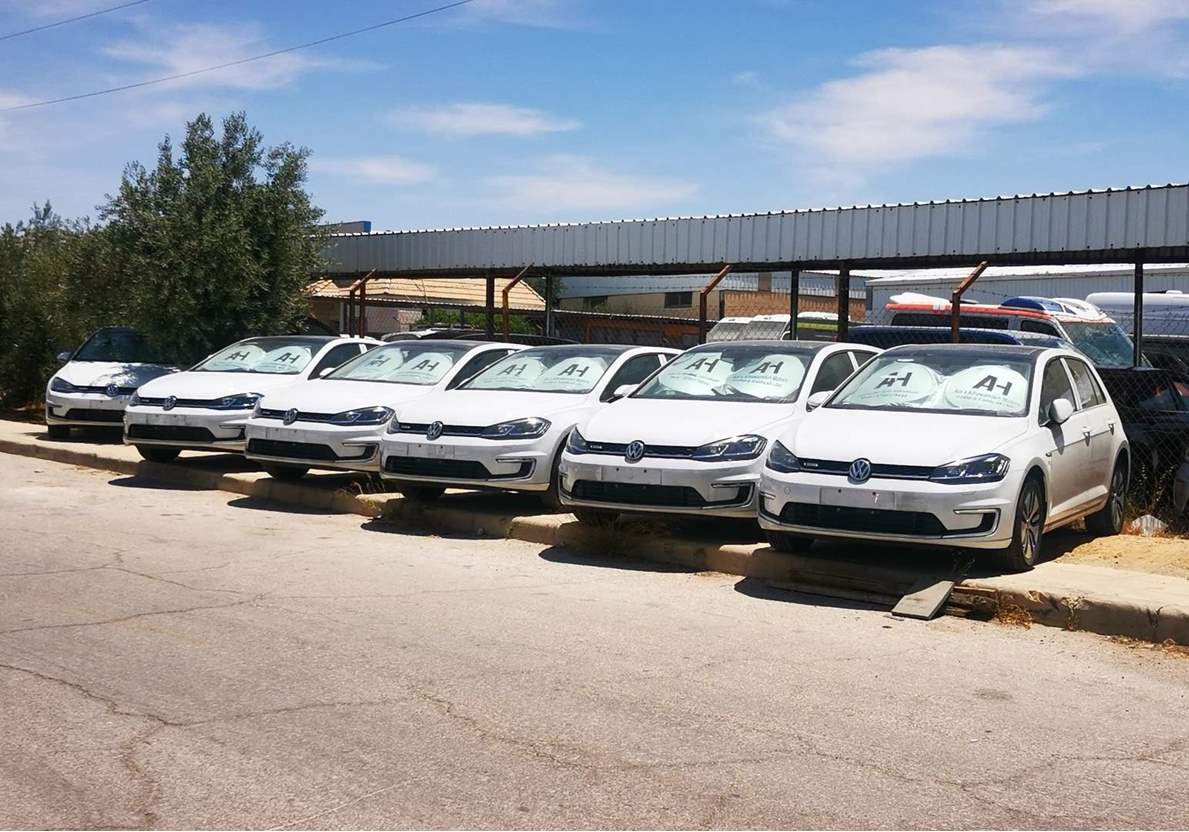Around the world, you rarely find a consumer who faces
difficult choices like the Jordanian citizens when it comes to buying a car.
 اضافة اعلان
Cars for sale are seen in the Zarqa Free Zone. (Photos: Mohammad Zaro/Jordan News)
اضافة اعلان
Cars for sale are seen in the Zarqa Free Zone. (Photos: Mohammad Zaro/Jordan News)
The customs tax equation, which considers the revenues
collected from imported cars annually as an important factor in the balance of the
Treasury’s budget, makes Jordan among the top five most expensive countries in
the world in terms of new car prices.
This reality results in new cars constituting 25 percent of
car imports, meaning that out of every four cars imported into the Kingdom,
there are three used cars versus only one new car. Consequently, Jordanian
consumers have many used car options, but are limited in their ability to
choose a new car, which only a quarter of the consumers are likely to be able
to afford.
But the question that must be asked is, does the consumer
realize his or her best interest? And do they actually choose what suits them
based on proper information and research?
An expert observer of the reality of the market would beg to
differ; the market actually interacts with cars with values within the reach of
consumers’ financial capabilities, which explains why cars form the Hybrid and
electric categories, as well as trucks, and, generally, all cars that benefit
from customs exemptions and tax reduction of all kinds, constitute the majority
of imported cars. Some Jordanians are willing to buy a truck with an
eight-cylinder engine only because it is within their price capacity, and they
may not care if it fits our narrow streets and consumes large quantities of
fuel daily.
The reality of the car market is organically linked to the
laws and regulations governing car prices. If the decision maker wants to
change this reality positively in terms of road safety, petrol consumption, or
environmental protection, they would be able to do so by simply favoring the
appropriate tax levies on better cars, instead of the current reality, where a
luxury hybrid car or a big-engine truck is less expensive than a small gasoline
engine family car.
The government insists on subsidizing
hybrid and electric
cars exclusively, and does not follow the lead of the
European Union, for
example, where cars and vehicles are rewarded with exemptions based on the
amount of pollution they cause and the amount of fuel they consume, regardless
of the engine technology. This can be considered a fair measure, especially if
we know that the technology used in conventional gasoline engines has made
great strides in fuel saving and reducing harmful emissions, which gives them
advantages close to those provided by hybrid cars.
These regular-engine cars also require less costly
maintenance and do not leave harmful waste to the environment after they reach the
end of their operational life, in addition to the fact that they cost much less
than high-tech hybrid systems.
It is necessary to reconsider the national strategy related
to vehicles and cars, so that it becomes more objective and fair, works to
direct car sales towards the safest and least harmful options for the
environment and for traffic safety, and does not favor one category of cars
alone, leaving the choice in the hands of the consumer, rather than directing
them towards the best options for the national interest.
Read more Lifestyle



